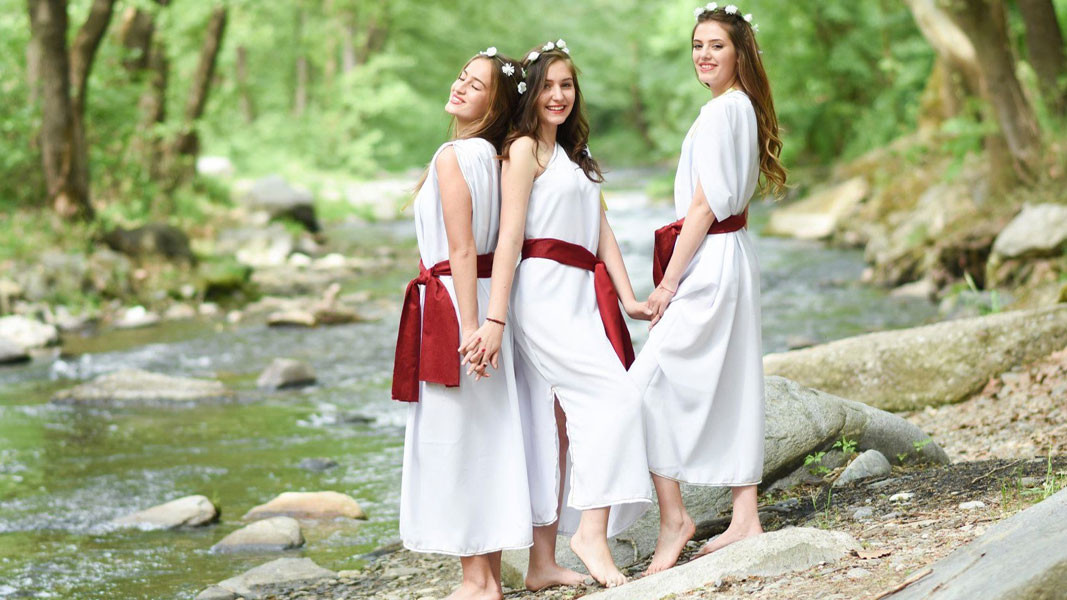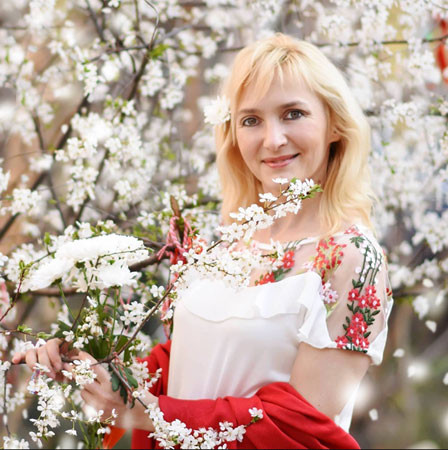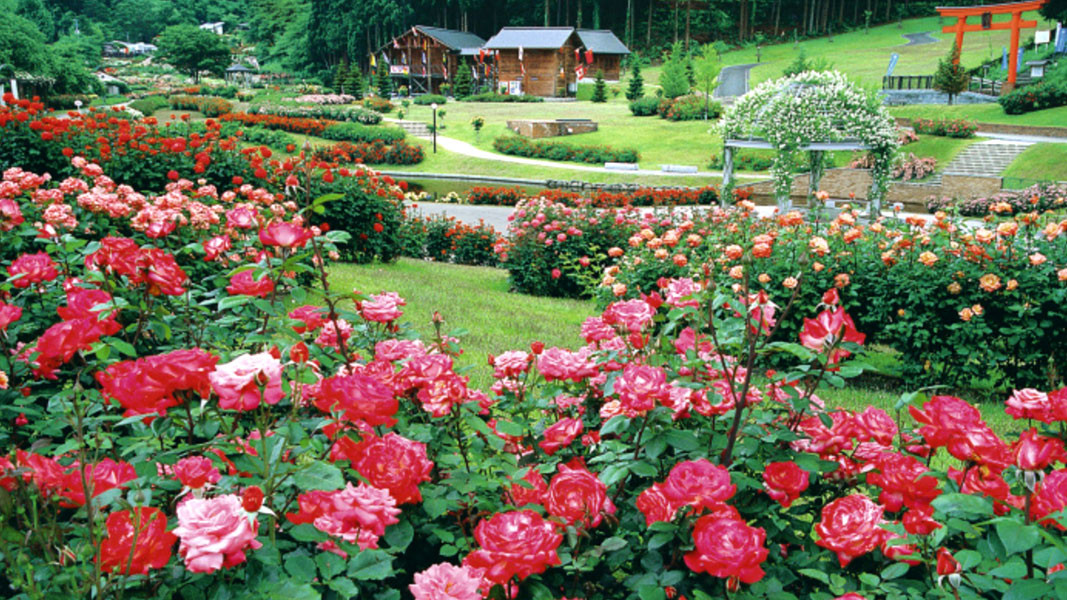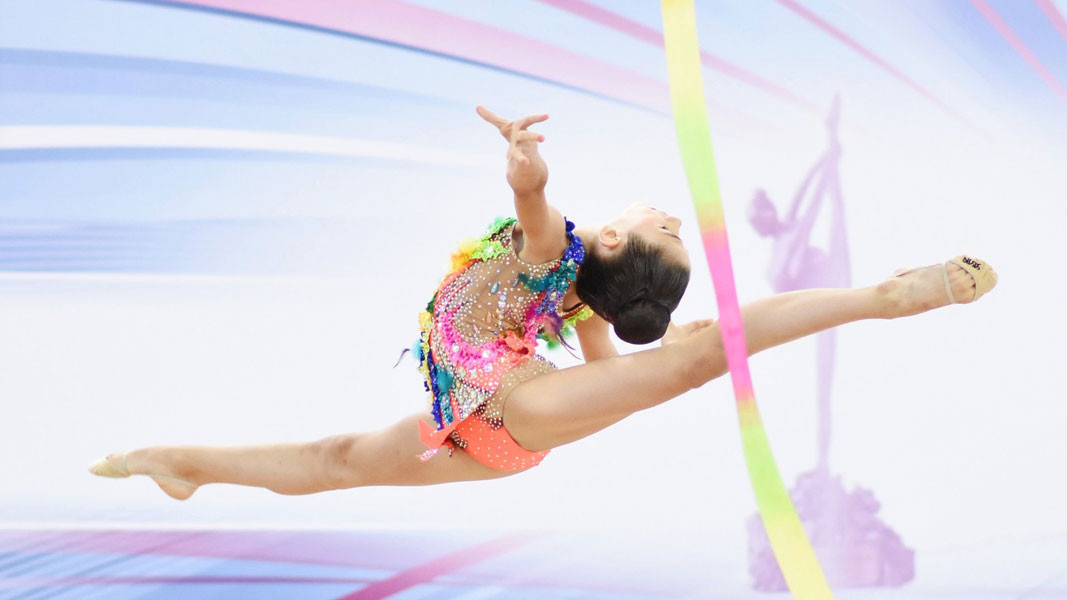A beautiful woman with a wreath of roses will be the image of Bulgaria during the Summer Olympic Games in Tokyo. A photo of her will be used for printing an anniversary stamp in Japan.
Inspired by a painting by Vladimir Dimitrov - the Master, photographer Dimitra Lefterova initially planned to shoot a session with sunflowers. However, when she met her future model, she decided to recreate the Bulgarian rose picking ritual. According to traditions, the most beautiful girl is chosen, as she could compete in grace and perfection with the rose.
 The camera captured a teacher from the Bulgarian town of Hisarya, Krasi Kisyova, dressed in a bright folk costume, which seems to have absorbed the color of roses – just like in a painting by an artist.
The camera captured a teacher from the Bulgarian town of Hisarya, Krasi Kisyova, dressed in a bright folk costume, which seems to have absorbed the color of roses – just like in a painting by an artist.
 This photograph by Dimitra Lefterova became part of an exhibition in the Japanese city of Murayama and the hosts were so impressed that they printed a stamp with the image to represent Bulgaria during the Summer Olympics.
This photograph by Dimitra Lefterova became part of an exhibition in the Japanese city of Murayama and the hosts were so impressed that they printed a stamp with the image to represent Bulgaria during the Summer Olympics.
 In the photo ‘Rose Picking’, Krasi is in the role of a rose picker wearing an authentic costume from the region of Hisarya, Dimitra Lefterova says. With this photo we wanted to show one of the most recognized Bulgarian symbols - the rose. The Japanese are very delicate people - they strive for perfection and love roses and flowers in general, as well as the beauty of women and nature. They value what we have, while we seem to forget this wealth. There are many beautiful women in Bulgaria and beautiful natural scenery. That is why it was normal for the Japanese to choose Krasi to represent our country.
In the photo ‘Rose Picking’, Krasi is in the role of a rose picker wearing an authentic costume from the region of Hisarya, Dimitra Lefterova says. With this photo we wanted to show one of the most recognized Bulgarian symbols - the rose. The Japanese are very delicate people - they strive for perfection and love roses and flowers in general, as well as the beauty of women and nature. They value what we have, while we seem to forget this wealth. There are many beautiful women in Bulgaria and beautiful natural scenery. That is why it was normal for the Japanese to choose Krasi to represent our country.
Krasi grew up in a family of folk singers and frequently went to concerts and danced as a child.
In the photo I am wearing a striped cotton shirt decorated with hand-knit lace. The vest is made of velvet and embroidered with colored threads and on my waist I have a beaded belt. The costume was worn until the mid-20th century and is typical of the region of Hisarya. I inherited it from my grandmother and it is very precious to me. I am collecting folk costumes and so far I have collected costumes from all the folklore regions of Bulgaria. But this one is the closest to my heart and I love wearing it very much.
What is it like to wear a traditional Bulgarian costume?
When I wear a folk costume, I change completely, Krasi Kisyova replies. At folklore gatherings I meet people who also wear national clothes and the energy is very nice as that is how one returns to their roots. We know that our grandmothers put a lot of effort into making these clothes with their own hands. It is the decorations and embroidery that have encoded their dreams and symbols for health, for love and happiness.
Committed to tradition, Krasi Kisiova organizes the “Haidut Gencho” folklore gathering in Hisarya, dedicated to the local protector during the times of Ottoman oppression. She has also been dreaming of visiting Japan and the city of Murayama where nature is similar to that in the Bulgarian Rose Valley, so it is not by chance that the city has one of the largest rose gardens with 750 species, including Bulgaria’s oil-bearing rose.
 During the Olympics in 2020, the Bulgarian rhythmic gymnastics team will stay in Murayama, where they already have a 400-member strong fan club.
During the Olympics in 2020, the Bulgarian rhythmic gymnastics team will stay in Murayama, where they already have a 400-member strong fan club.
 English: Alexander Markov
English: Alexander Markov
Photos: Dimitra Lefterova, private library
The Speaker of the National Assembly Natalia Kiselova will today award the winners of the 32nd Children's Easter Festival in the Serbian town of Bosilegrad. The children will compete in three categories – for the strongest, most beautiful and most..
A colorful Easter celebration under the slogan “Let’s sing and dance on Easter, on the square” will take place today in the open air in the town of Stara Zagora. A number of folklore groups and singers from the region will take care of the good..
Sugar artist Mariya Ozturk's latest masterpiece - a model of St Peter's Basilica in Rome - prompted us to reach out to our fellow Bulgarian during the bright holiday season. Though she’s been straddling life between Bulgaria and Istanbul for years, she..
The FameLab International Science Communication Competition aims to discover, train and give a platform to the world’s most promising new scientists. The..
"United We Stand" - Bulgaria's national motto - will be put into action on May 8 by the Bulgarian community in New York City, amid the realities of the..
"We may be 10 hours behind Bulgaria, but our compatriots on the West Coast of the United States deeply cherish everything that connects them to Bulgaria..

+359 2 9336 661
